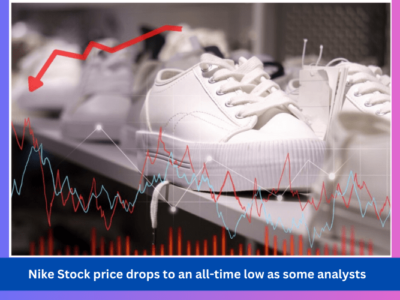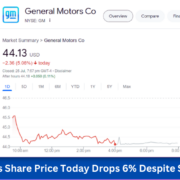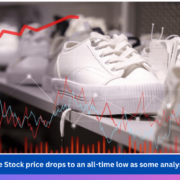
Today’s Stock Market: Asian Equities Begin June With Significant

Asian Equities Begin
Monday, June 3, 2024, at the foreign exchange dealing room of the KEB Hana Bank headquarters in Seoul, South Korea, currency dealers work close to the screen displaying the Korea Composite Stock Price Index (KOSPI), left, and the foreign exchange rate between the US dollar and South Korean won. (Ahn Young-joon/AP Photo)
Asian equities started June off strongly on Monday, as Wall Street saw a surge fueled by a report indicating that U.S. inflation is not getting worse.
Leading the region’s gains were Hong Kong’s Hang Seng, which increased 2.7% to 18,560.98, and the Shanghai Composite index, which increased 0.3% to 3,095.63.
Seoul’s Kospi increased 1.9% to 2,687.11, while Tokyo’s Nikkei 225 gained 0.9% to 38,849.65.
S&P/ASX 200 Australia increased 0.7% to 7,756.80.
The Taiex was up 1.9% in Taiwan.
The S&P 500 closed at 5,277.51 on Friday, marking its sixth consecutive month of gains of 0.8%. The Nasdaq fell less than 0.1% to 16,735.02, while the Dow surged 1.5% to 38,686.32.
Gap surged to one of the largest gains on the market, rising to 28.6%, after exceeding analysts’ expectations in terms of profit and revenue for the most recent quarter. The retailer stated that the economy’s outlook is still uncertain, but it also increased its expectations for sales and profitability this year. Easing Treasury yields in the bond market helped stocks overall, as last month’s inflation report, which came in at 2.7%, was essentially expected.That may increase the Federal Reserve’s confidence that inflation is steadily approaching its 2% target, which it says it must do before lowering its main interest rate. The U.S. government’s report released on Friday also revealed that consumer spending growth slowed more than analysts had predicted. Americans’ income growth also tapered off last month.
“At last, there are definite indications in the U.S. economic data that consumers are experiencing financial hardship. Spending in 2022 is getting harder to achieve with savings running out, prices rising, the job market slowing down, disposable incomes declining, and interest rates remaining high. In a commentary, Stephen Innes of SPI Asset Management compared it to trying to fill a bucket with a hole in it and said, “Good luck keeping it full.”
In an attempt to rein in excessive inflation, the Federal Reserve has maintained the highest federal funds rate in over two decades. However, if rates are kept too high for too long, they may stifle economic expansion and trigger a recession that destroys corporate profits and results in job losses for workers.
The 10-year Treasury’s yield dropped from 4.55% late on Thursday to 4.50% on Friday. It had hit 4.60% earlier in the week due to concerns about weak demand after a few Treasury auctions, which had a negative impact on stocks.
According to data from CME Group, almost nobody anticipates that the Federal Reserve will lower interest rates at its upcoming meeting in a week and a half, but the majority do so at least once this year.
asian market stock market Despite meeting analyst profit estimates for the most recent quarter, Dell fell 17.9%. Expectations were very high because the stock had already surged 122% in 2024 prior to the report, and analysts expressed concerns about how much profit Dell is extracting from each $1 in revenue.
After rising more than 20% since its stunning profit report last week, Nvidia’s momentum has finally slowed, and it fell for a second day in a row, losing 0.8%.
In its opening trading on Thursday, Trump Media & Technology Group fell 5.3% in the wake of Donald Trump’s felony conviction. The Truth Social platform’s operator, the company, had previously alerted U.S. securities regulators to the possible consequences of a conviction in filings.
MongoDB fell 23.9% even though its revenue and profit exceeded expectations. The database provider for developers provided profit projections for the current quarter and the entire year that were below analysts’ expectations.
In other early-morning transactions, the New York Mercantile Exchange’s electronic trading of U.S. benchmark crude oil saw a gain of 46 cents to $77.45 per barrel.
The global benchmark, Brent crude, increased 46 cents to $81.57 following OPEC’s agreement over the weekend to continue its production cuts, which have been driving up prices.
Asian equity markets of US dollar decreased from 157.26 to 157.13 Japanese yen. The euro increased from $1.0848 to $1.855.
Read Out Our Blog Post
Parents have long shunned giving peanuts to children. Here's a novel approach to avoid nut allergies.















